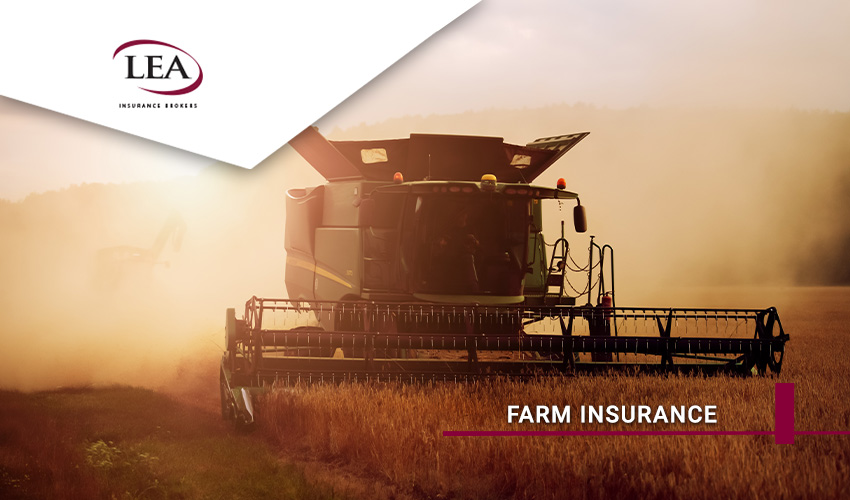
How to Fend off Rising Premiums for Contract Harvester Cover
The pandemic-induced skills shortage has seen contract harvesters in demand and now insurance premiums are reaping a huge rise. For example, some harvesters faced a hefty $54,000 bill to comprehensively insure their new headers at the start of the season, according to ABC News Online. Elsewhere, insurers have cancelled their harvesters’ policies to avoid paying the excess premiums.
This article explains why premiums are rising, what it means for growers and farmers, the need for header insurance, plus other ways to lower your premiums.
Why are premiums rising?
The Insurance Council of Australia says we’re feeling the local impact of a ‘hardening’ global insurance market. In a hard market, premiums rise or are high relative to the past, making it more expensive to take out insurance. It means insurers’ underlying costs are increasing.
Other stresses on insurers and re-insurers, such as catastrophic bushfires, class actions, court awards and professional indemnity insurance claims, also cause premiums to rises. We’ve also seen some policy exclusions and higher limits in policies in this hard market. That’s about insurers reducing their exposures or withdrawing from the market to protect their financial position.
Last September, the ICA issued about a dozen recommendations to deal with the affordability and sustainability of commercial insurance. Some of those it can implement solo, others involve brokers, advisers, customer groups, governments and their agencies. Recommendations include standardising insurance documentation, risk management and mitigation, government intervention and setting up a group scheme. It was also recommended that an ICA and NIBA working group examine business interruption products and issues associated with insuring pandemics.
What this means for farmer/s growers
Higher premiums for farmers and growers mean they face a scramble to find affordable, best-fit coverage. If they can’t, they may need to:
- Mothball their harvesting machinery and await a softer insurance market
- Not buy a new header
- Close their business
- Subcontract others to do the harvesting
- Diversify operations away from cropping.
Harvester operators have also bristled at having to explain to insurers where they planned to go to harvest and what they’d be harvesting, reported the Stock and Land news site.
Do I need header insurance?
As a contract harvester, you’d need insurance cover to cover your risks because it’s the lifeblood of your business. Issues include you or your driver suffering dehydration and heatstroke, inadvertently starting bushfires, accidents while travelling between farms, and whether you run a 24-hour operation. As well, if you’re not familiar with the farm, you could have a nasty surprise such as discarded steel reinforcement pieces puncturing your tyres, potentially setting you back a few hundred dollars.
However, if harvesting is your sideline business, it’s a slightly different story. In that case, be sure to check your general farm insurance policy package first. It may cover you for liability risks when contracting, such as:
- Farm property damage
- Farm personal injury.
Be sure to understand the term ‘incident’. Some policies set a percentage limit on how much of your whole farm income you can source through harvesting contracting. If you’re likely to exceed the permissible contracting percentage, we can help you secure extra coverage.
Other ways to lower your premiums
Bolster your risks minimisation strategies with these tips, including:
- Regularly maintaining your machines to reduce the risk of fires starting when there’s a higher dust content
- Keep your brakes and indicators in good nick and your windscreens and mirrors clean. This will help you to stay safe and reduce the risk of an accident
- Be thorough when inducting employees about safety processes such as spotting such problems as rock piles, contour banks, power poles, and shorter crops, so they don’t damage your plant
- Service your firefighting equipment, pumps and vehicles and keep fire tanks full to the brim
- Maintain firebreaks around your assets and property to slow fires and reduce their intensity
- Consider buying a second-hand rather than a new harvester
- Double-check the reflective materials on your harvester before you take to the open road
- Follow your state or territory’s regulations regarding combine harvesters, such as this one for NSW.
As for safety, research shows that field accidents resulted in more fatalities than on-road accidents. The most common incidents were fires and injuries caused by body parts getting tangled in machinery. Queensland’s WorkSafe authority has some helpful safety tips about working with and near harvesters.
It’s possible to get out of the squeeze of higher premiums with these tips and more risk management advice from us.
